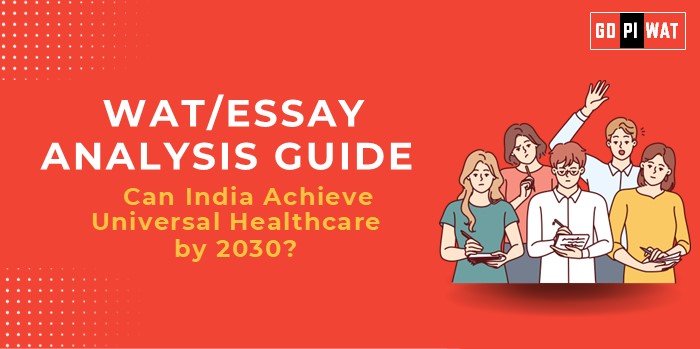🏥 Can India Achieve Universal Healthcare by 2030?
🌟 Introduction to the Topic
Universal healthcare (UHC) is critical for ensuring equitable access to quality health services for all citizens, regardless of socio-economic status. In India, UHC aligns with broader goals of socio-economic development and global competitiveness. With initiatives like Ayushman Bharat, India has made strides, but significant challenges remain.
📊 Quick Facts and Key Statistics
- Healthcare Coverage: Ayushman Bharat has provided health coverage to over 50 crore beneficiaries.
- Health Expenditure: India spends 1.3% of its GDP on public healthcare, compared to the global average of 6%. (World Bank, 2024)
- Out-of-Pocket Expenditure: Accounts for 63% of healthcare costs, disproportionately affecting low-income families.
- Workforce Shortage: 1 doctor per 1,456 people, against the WHO recommendation of 1:1,000.
🏆 Achievements
- Ayushman Bharat: Largest government healthcare scheme globally, offering free secondary and tertiary care to millions.
- Digital Health Initiatives: The National Digital Health Mission aims to digitize health records and streamline service delivery.
- Immunization Success: Over 90% vaccination coverage achieved under Mission Indradhanush.
⚠️ Challenges
- Underfunding: Public healthcare expenditure remains low, limiting infrastructure and service reach.
- Rural Disparities: Healthcare access in rural areas is hampered by poor infrastructure and workforce shortages.
- Workforce Gaps: Insufficient numbers of doctors, nurses, and allied health professionals.
🌍 Global Comparisons
- Thailand: Achieved UHC by increasing healthcare spending and prioritizing preventive care.
- UK: The NHS provides free healthcare funded through taxation, ensuring accessibility and equity.
🔑 Recommendations for Sustainable Progress
- Increase Public Health Spending: Raise allocation to at least 5% of GDP to improve infrastructure and service delivery.
- Public-Private Partnerships: Leverage private sector efficiency for scaling healthcare initiatives.
- Leverage Technology: Use AI, telemedicine, and digital health tools to optimize service delivery in underserved areas.
📖 Case Studies
- Ayushman Bharat: Successfully provided free treatments for over 3 crore patients since its inception in 2018.
- Kerala: High healthcare indicators due to strong public health infrastructure and literacy levels.
🔍 Structured Arguments for Discussion
- Supporting Stance: “India’s initiatives like Ayushman Bharat and digital health programs showcase the potential for achieving UHC by 2030.”
- Opposing Stance: “Structural challenges like underfunding and workforce shortages make achieving UHC by 2030 unrealistic.”
- Balanced Perspective: “Achieving UHC by 2030 is feasible but requires increased investments, robust policy implementation, and multi-stakeholder collaboration.”
💬 Effective Discussion Approaches
- Opening Approaches:
- Statistical Hook: “Despite Ayushman Bharat’s success, out-of-pocket healthcare expenditure remains at 63%, highlighting critical gaps.”
- Global Comparison: “Thailand’s UHC model offers valuable lessons for India’s healthcare goals.”
- Counter-Argument Handling:
- Acknowledge current gaps but emphasize scalable solutions like technology and PPPs.
- Highlight successful pilots as evidence of feasibility.
📚 Connecting with B-School Applications
- Real-World Applications: Understanding UHC offers insights into policy planning, resource allocation, and public-private models.
- Sample Interview Questions:
- “What role can technology play in achieving UHC in India?”
- “Evaluate the impact of Ayushman Bharat on India’s healthcare landscape.”
- Insights for Students:
- Explore healthcare policy as a macroeconomic lever.
- Analyze global healthcare models for scalable solutions in emerging economies.


